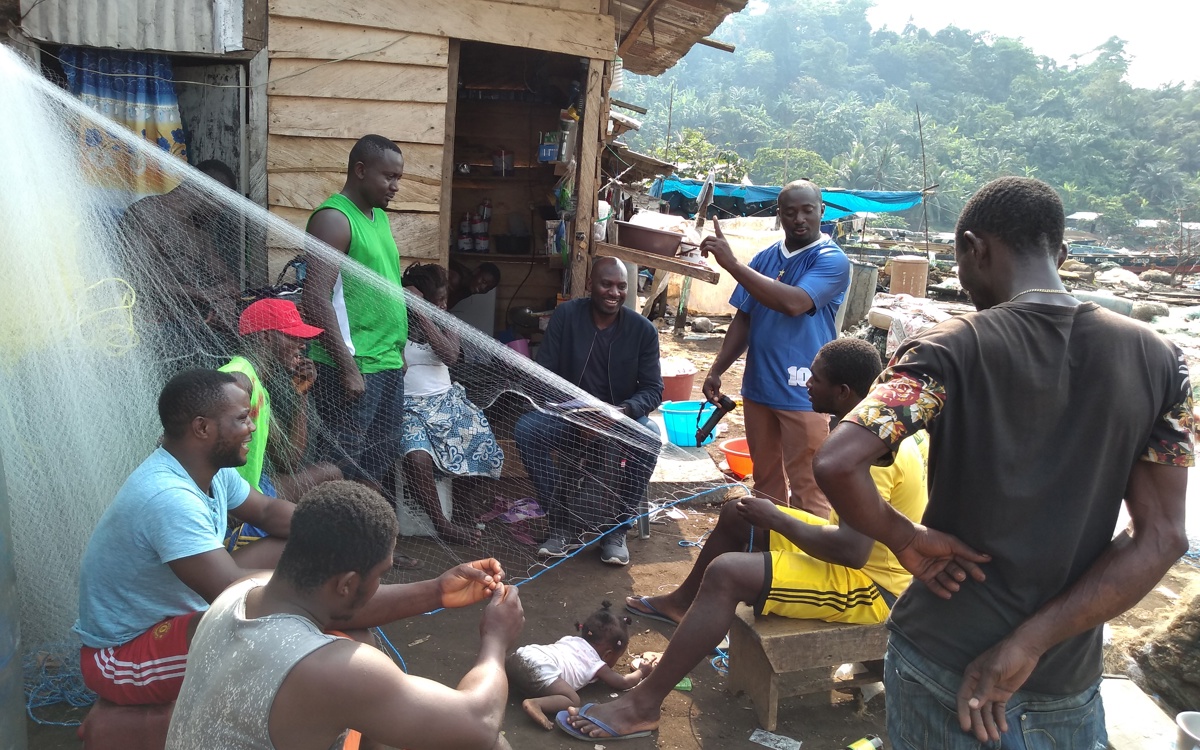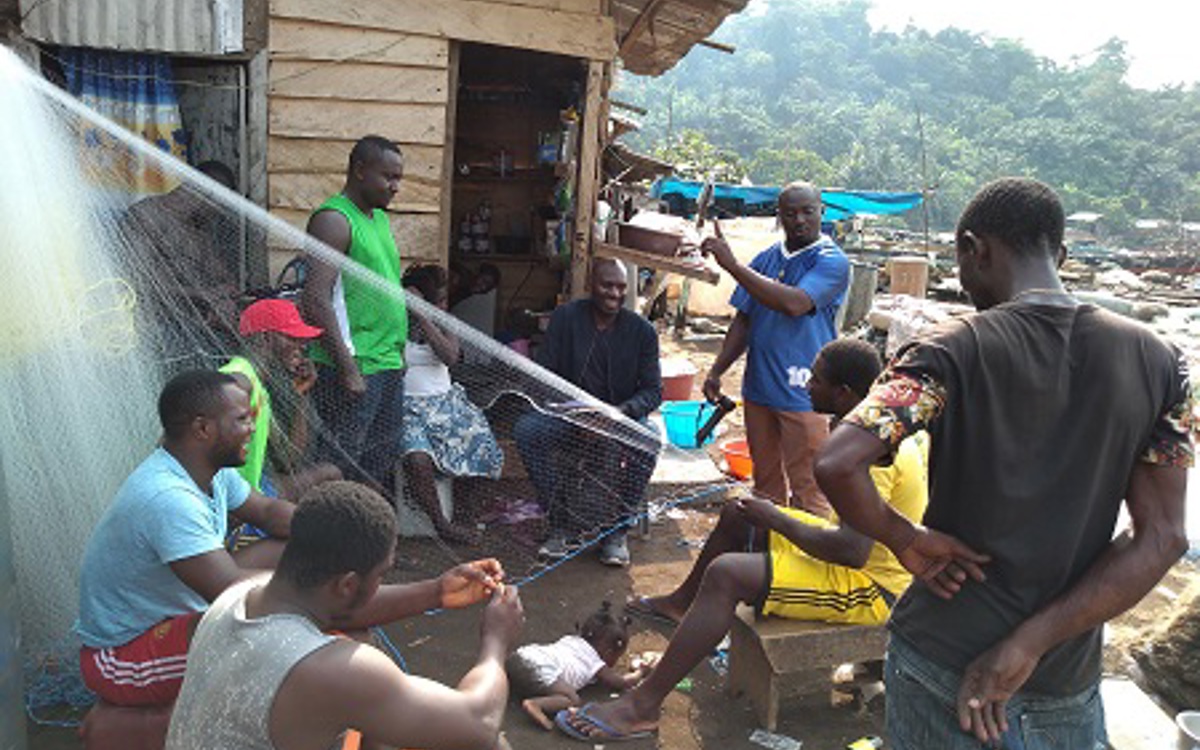

Maurice Beseng
PhD candidate
Cameroon's west maritime district is a pearl in the crown of its status as 'Africa in miniature'. The black sandy beaches along its coastline are lined with numerous attractions that are popular among both locals and international tourists, such as areas like the Limbe down beach – a busy fish landing site for the thousands employed in the fishing industry who work and live there.
The activities of fishers and other businesses, while important in supporting the local economy and livelihood of coastal communities, generate a serious environmental problem – plastic pollution. The black sands of Limbe down beach are covered in plastics of all shapes and sizes, including single use plastics such as bottles, straws and shopping bags. One type particularly stands out – abandoned, lost or otherwise discarded fishing gear (ALDFG), commonly referred to as 'ghost gear'. Over 98% of fishing nets used in Cameroon are made from plastic, making them a considerable source of plastic pollution.

An estimated 640,000 tons of ghost gear are lost each year to the marine environment. The term ghost gear refers to its ability to continue to 'fish' and trap marine life long after its abandonment. Over time they degrade into microplastics, which negatively affect marine creatures, especially fish. This causes a reduction of fish stocks and affects the food security of vulnerable coastal communities that largely depend on seafood in their diets.
Mapping attitudes to plastic pollution
Through my ACU Blue Charter fellowship, I spent almost three months in Cameroon's west maritime district hosted at the University of Buea, to explore the perceptions of fishers and local state actors towards the ghost gear-plastic pollution link, as well as current management strategies. In the early stages of my fellowship, I did further research on the plastic pollution problem in Cameroon. I spoke with fisheries managers and other local state officials. Most admitted that plastic pollution is a huge problem and the government is responding to the challenge, pointing to a 2014 law that banned the importation, production and sale of non-biodegradable plastics. While a commendable initiative, the government struggles to enforce the ban. As I found out, the issue of ghost gear is not yet a priority as the government's own institution – the Artisanal and Marine Fisheries Agency – is licensed to import and market non-biodegradable fishing nets to artisanal fishers. In 2016, before the outbreak of conflict in the English-speaking regions of Cameroon, there were approximately 4,500 artisanal fishers using 16,128 pieces of fishing gear in the region.
With assistance from my host institution, I carried out field visits to six fishing communities, where I conducted 60 interviews and held 2 informal group discussions with artisanal fishers. Most fishers are aware that their fishing nets are made of nylon material, however, nearly all rejected the view that it causes plastic pollution. 'We obtained most of our fishing nets from the government, it means there is no problem with it', was the emphatic response from an artisanal fisher. It wasn't until I showed the fishers pictures and YouTube videos that showed fish snarled and entangled in fishing nets that some later admitted it could be a problem, but most were adamant that the illegal fishing practices of industrial fishing vessels pose an even greater threat to their livelihood.

Local initiatives and the need for capacity building
During these field visits to fishing communities, I noticed that there were no facilities for collecting waste such as single-use plastics and unwanted fishing gear. Fishers and other users therefore throw their waste as they see fit. Some fishers, however, use some unwanted fishing nets to protect their community from erosion. Others stated that some local residents collect the ghost gear for other domestic uses such as fencing off fishponds and gardens to deter predators and stray animals. Whilst these are good initiatives for recycling ghost gear, it still poses a plastic pollution problem in local communities if they eventually degrade to microplastics, contaminating water sources and gardens. Nonetheless, local initiatives like these show that there is potential for a circular economy of ghost gear in Cameroon – and more research and education is needed to curb its use.
The ACU Blue Charter fellowship gave me an opportunity to establish new connections and build networks that could lead to new collaborations. I spoke with maritime fisheries professionals and explored opportunities to support teaching on the maritime security programme at the University of Buea. Another highlight of my fellowship was the opportunity to teach PhD and masters students, learn from their varied research, and acquire key skills that will help me grow as an early career researcher.
Through the ACU Blue Charter fellowship, I have learnt that coastal communities in developing countries are highly vulnerable to the impact of ghost gear, however with education and cooperation, we can all curb its proliferation and learn to reuse it in a sustainable way.
